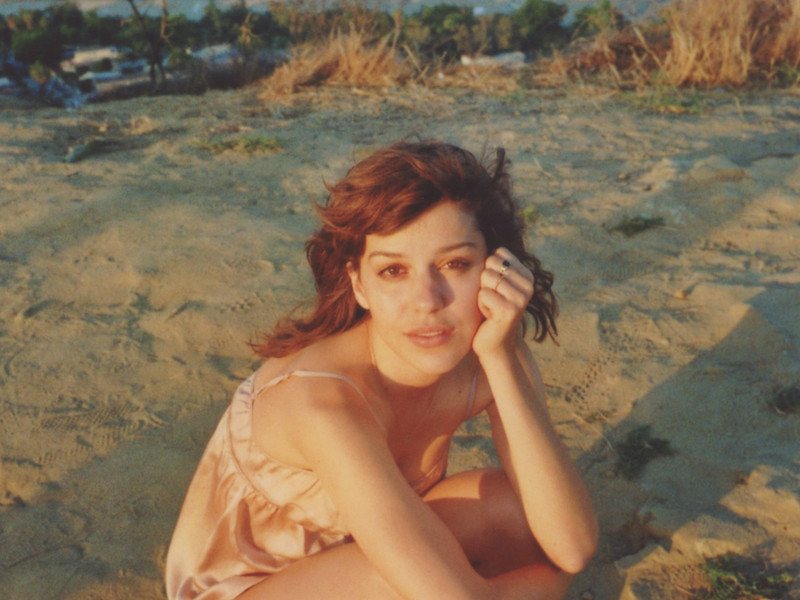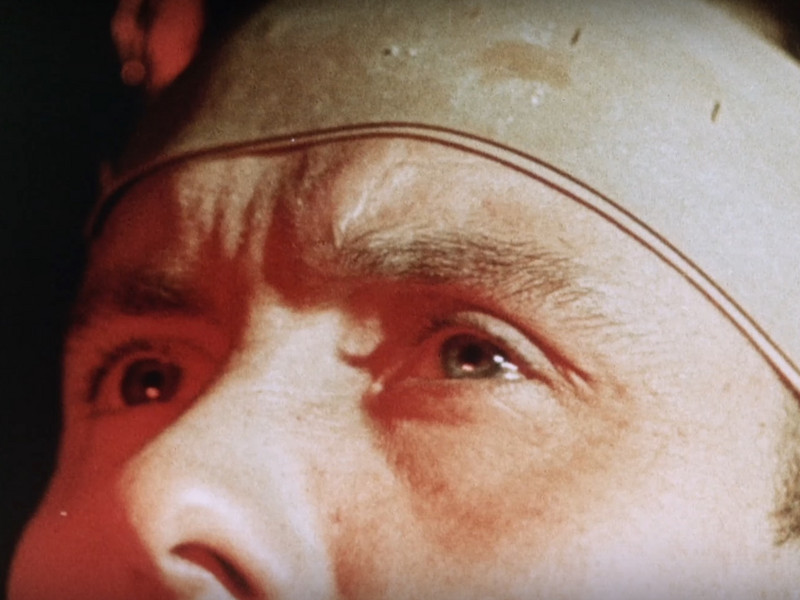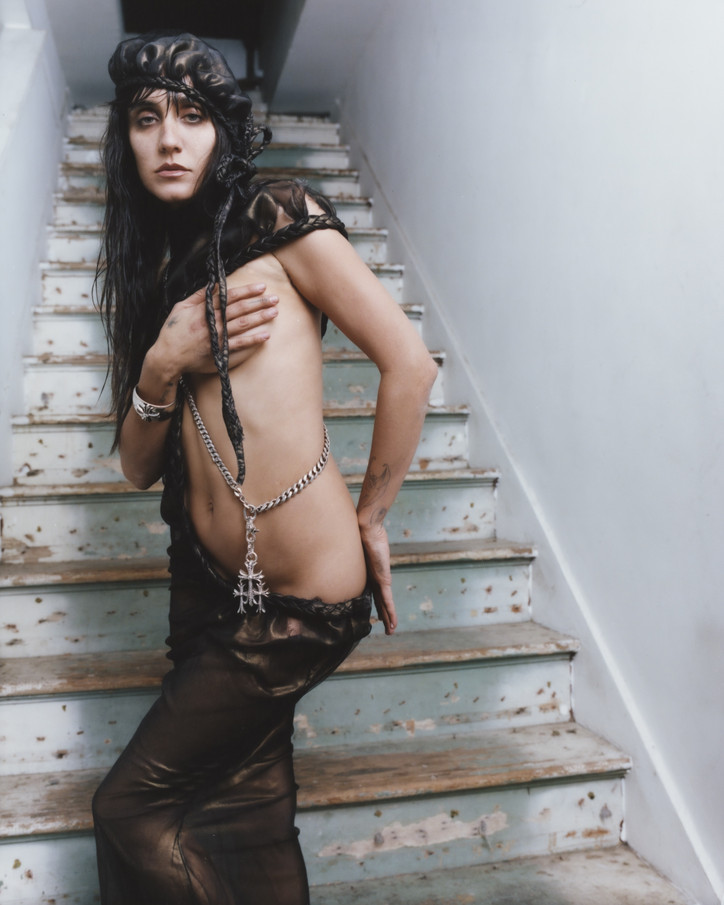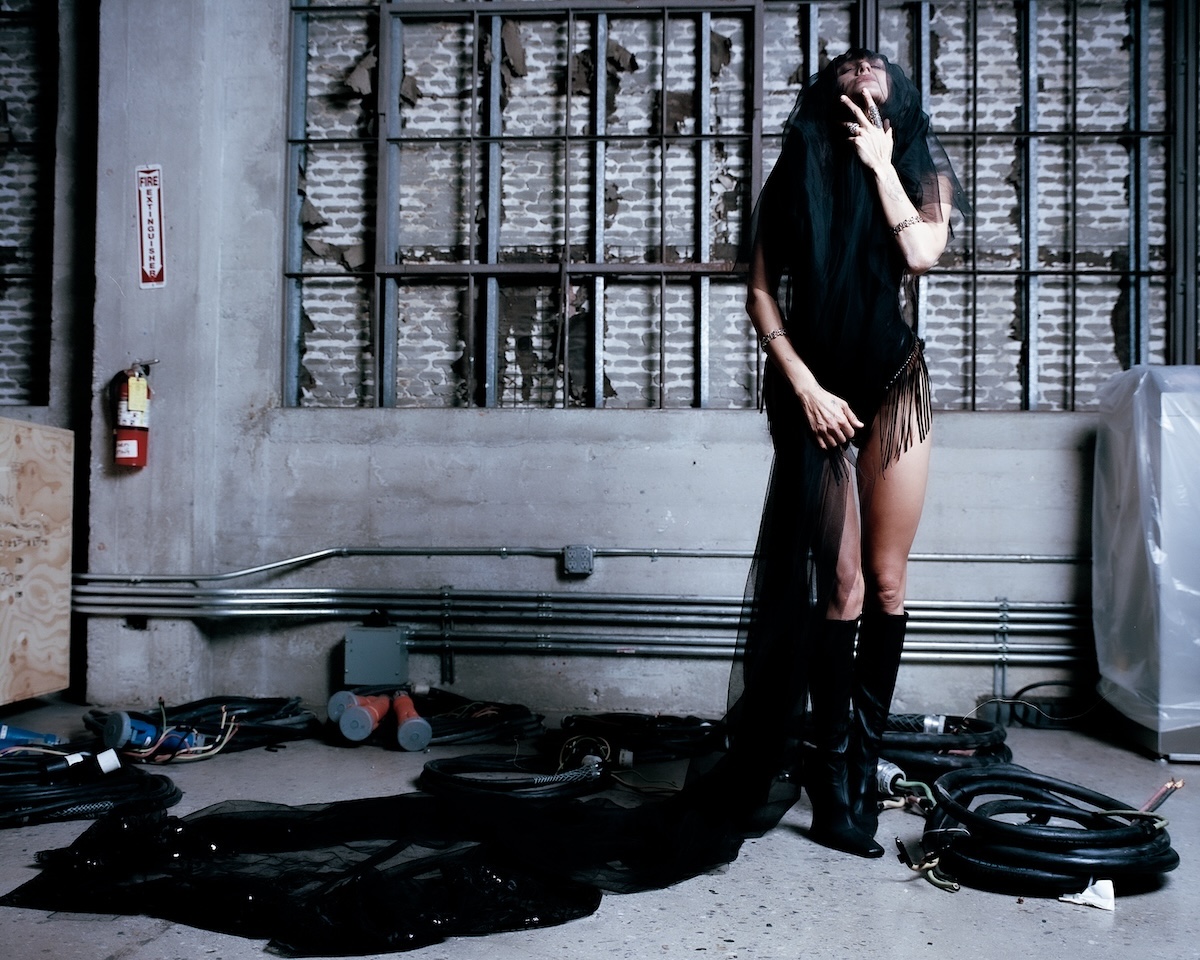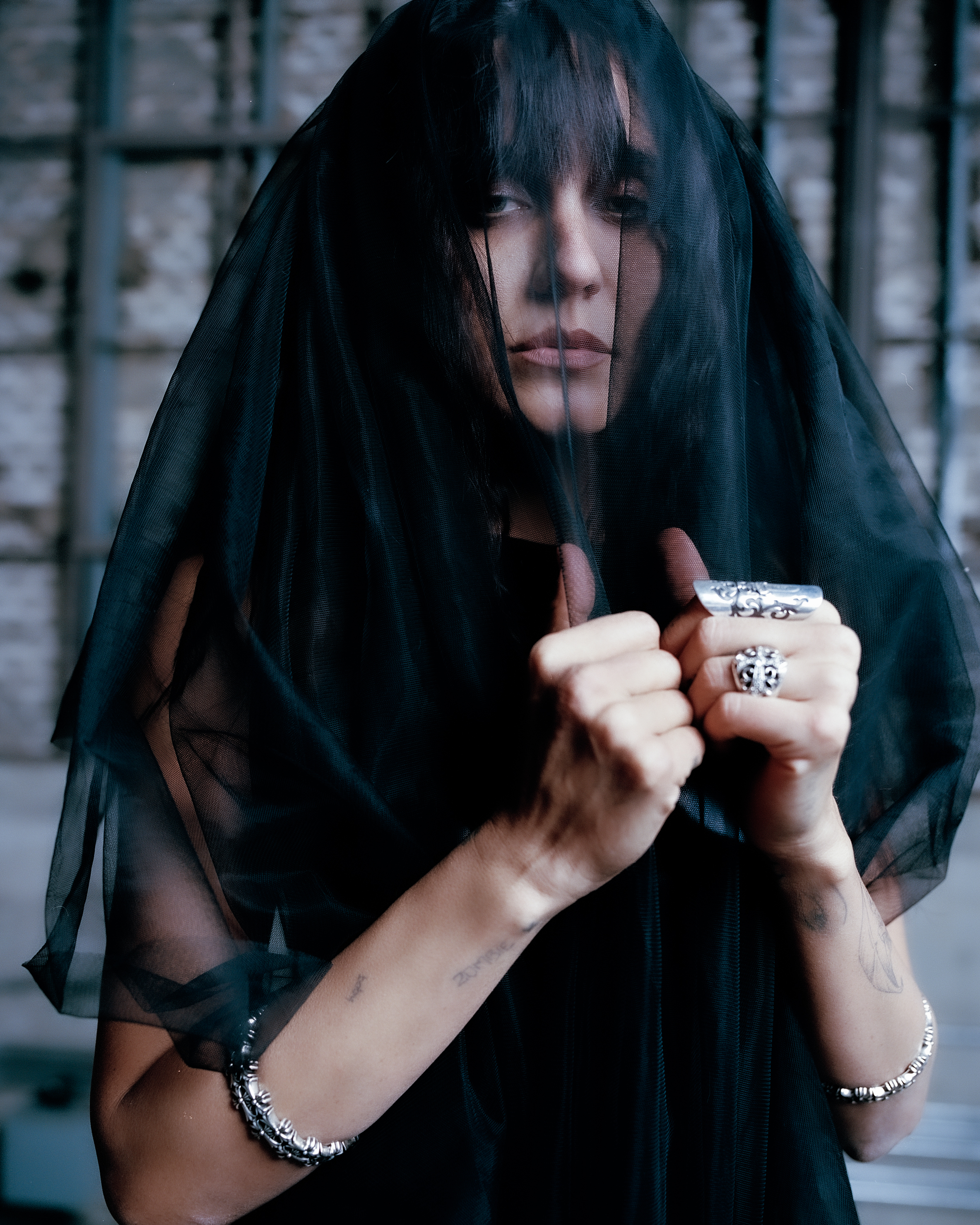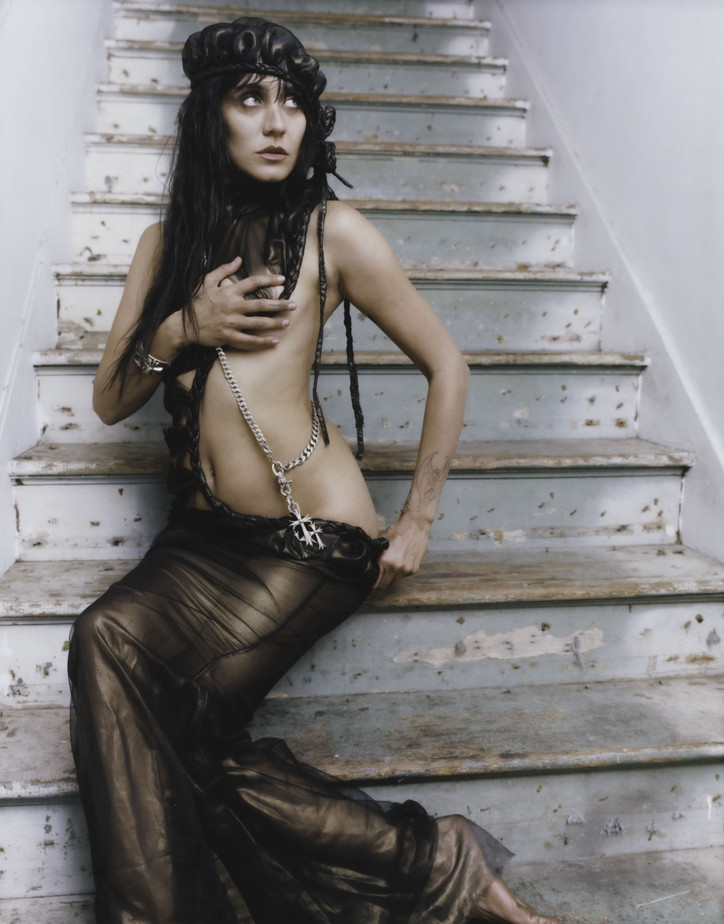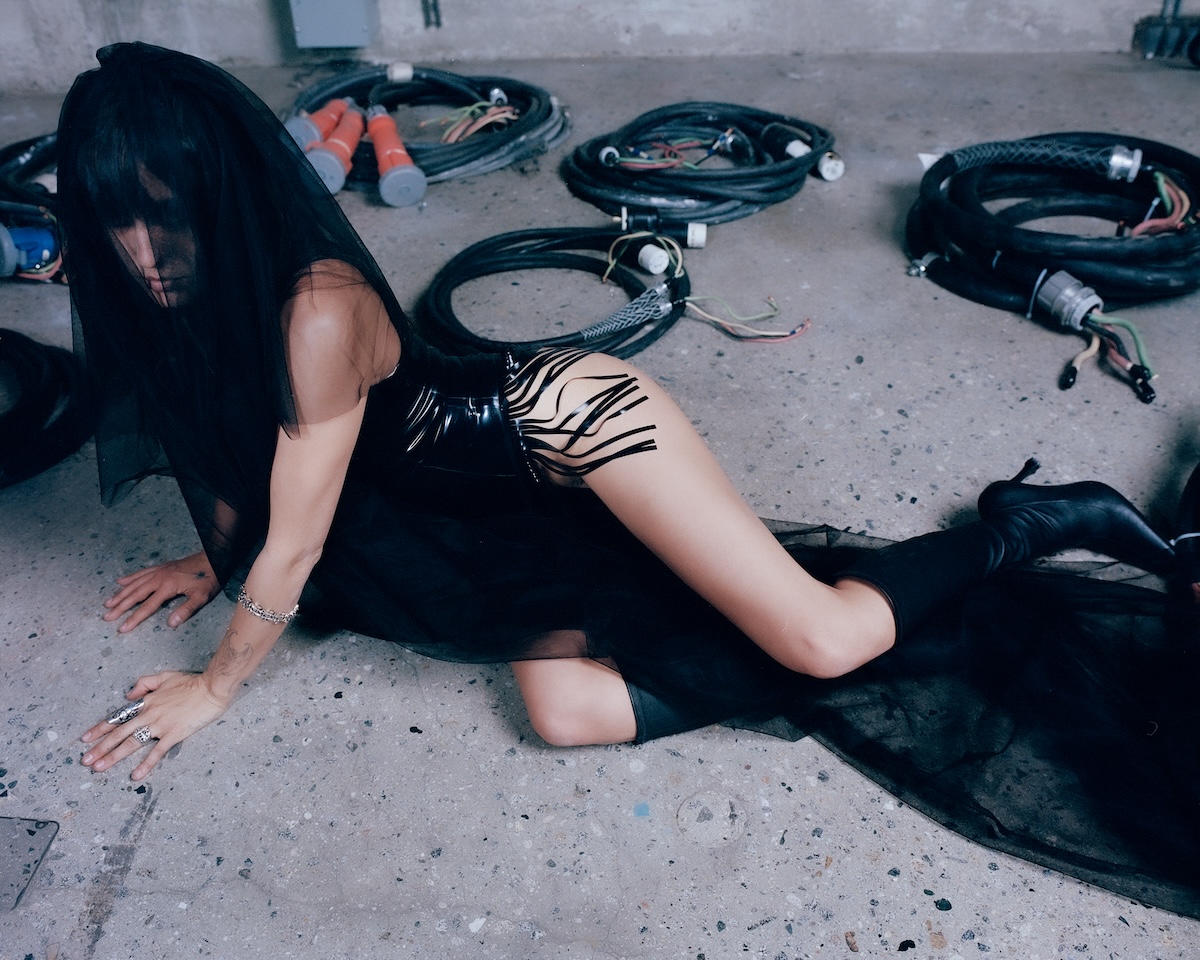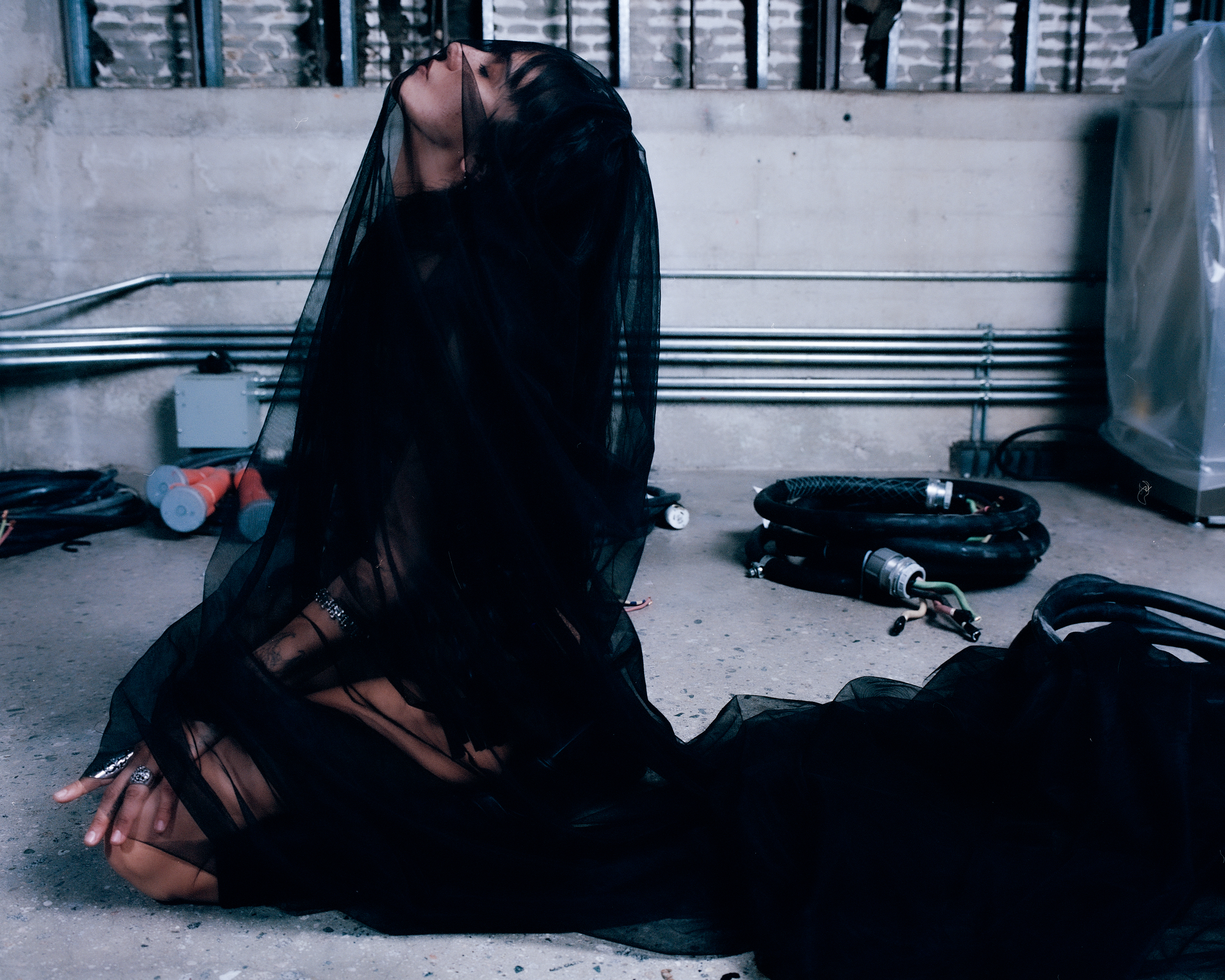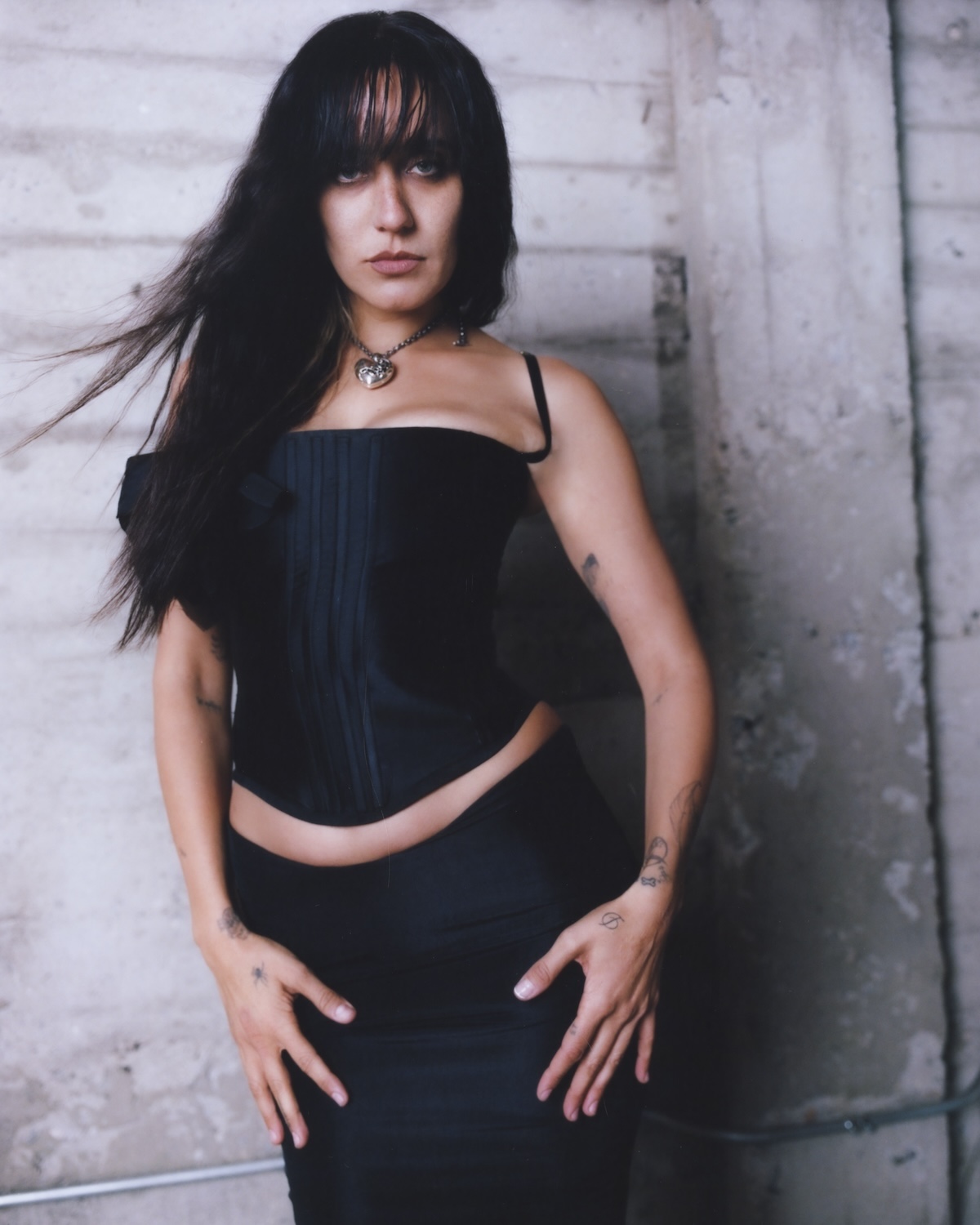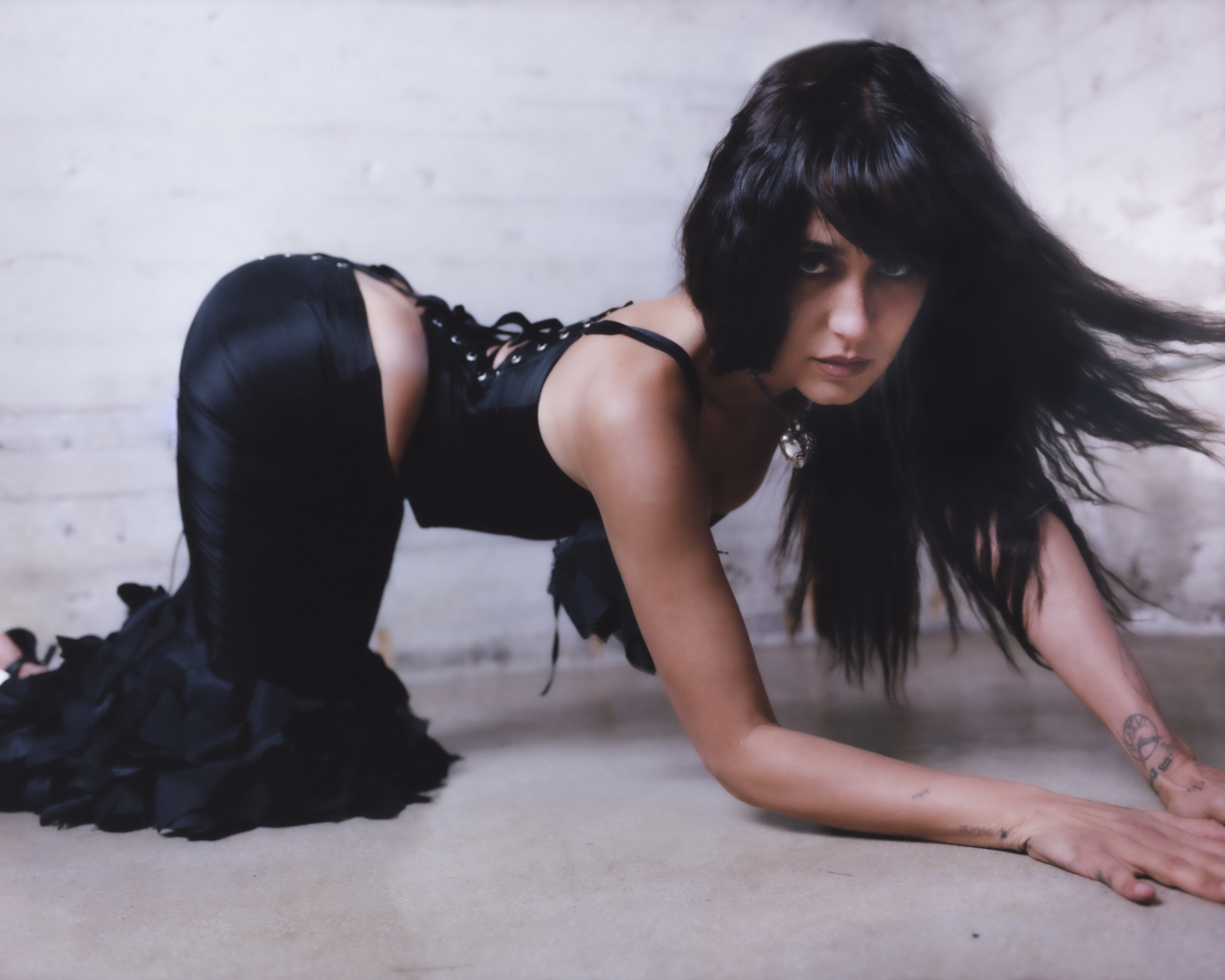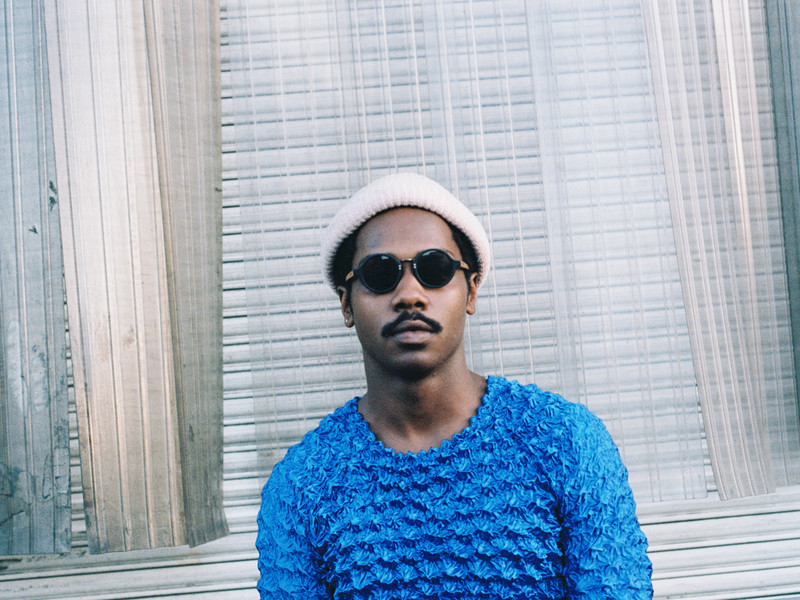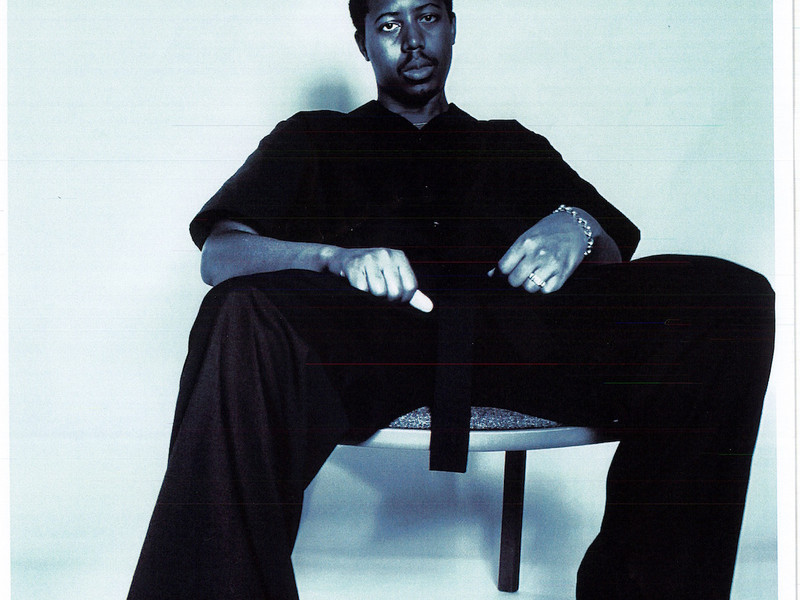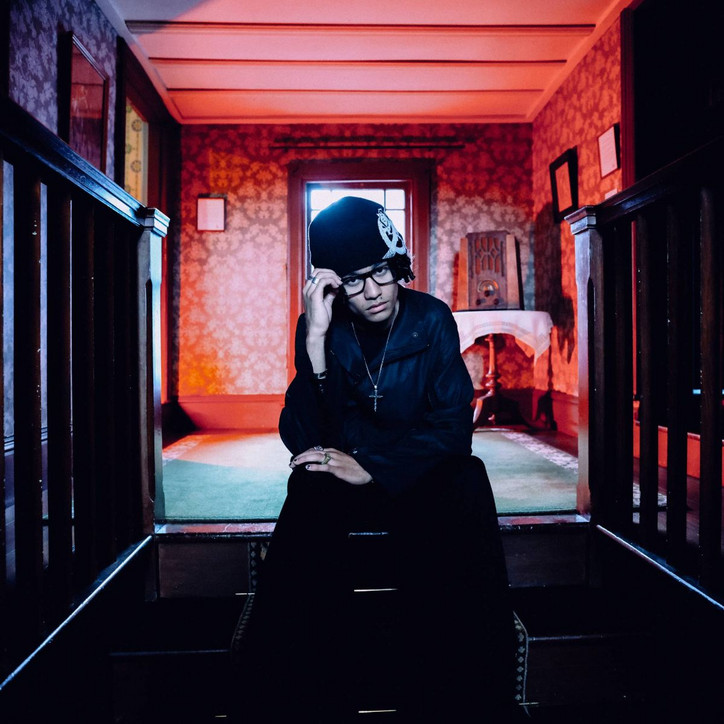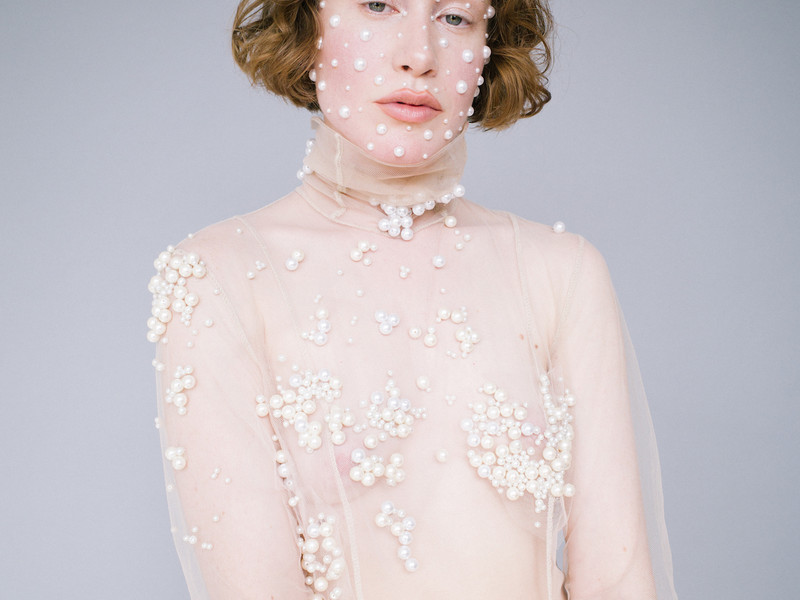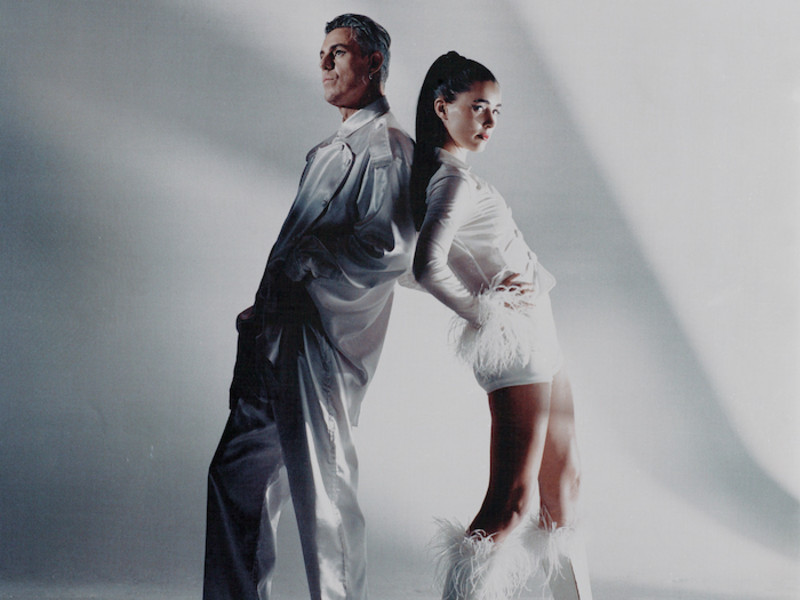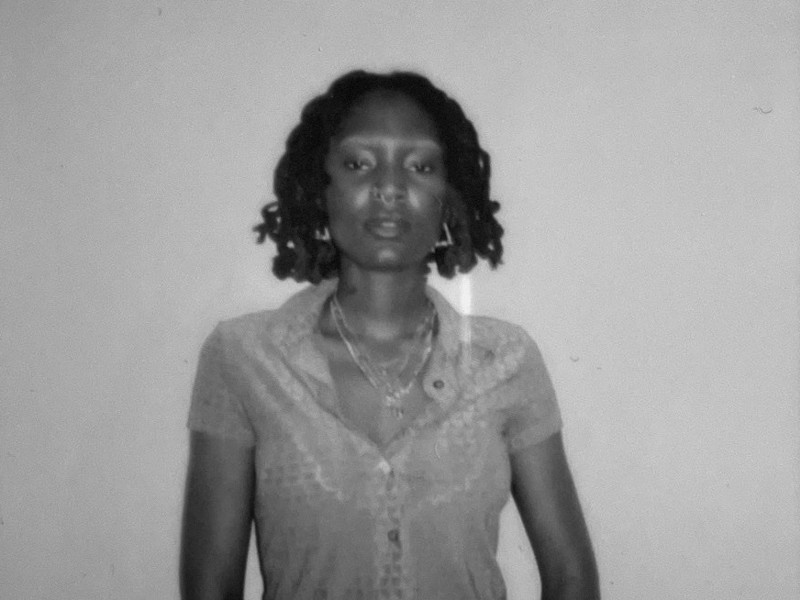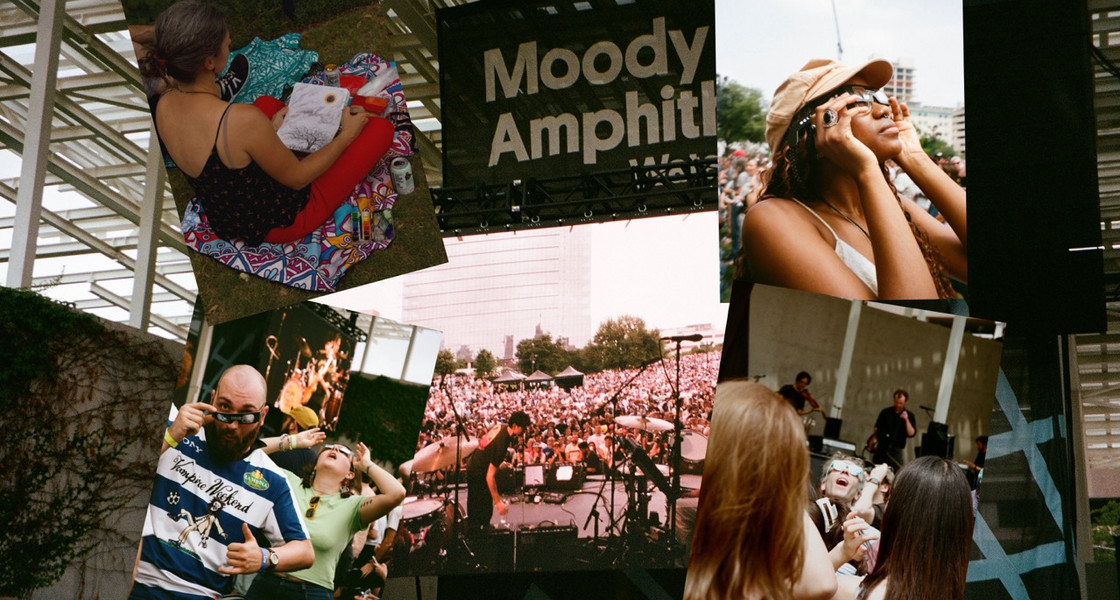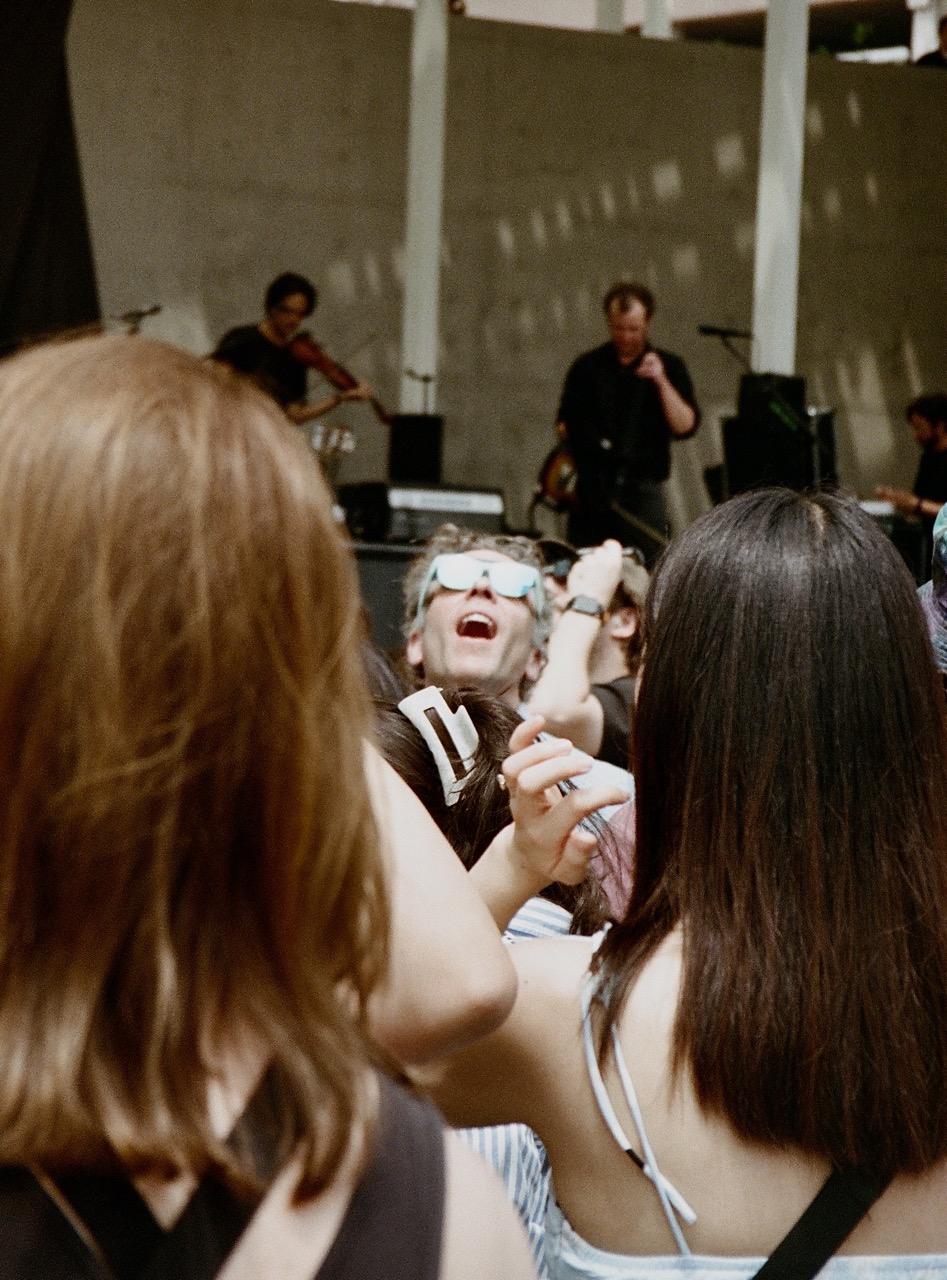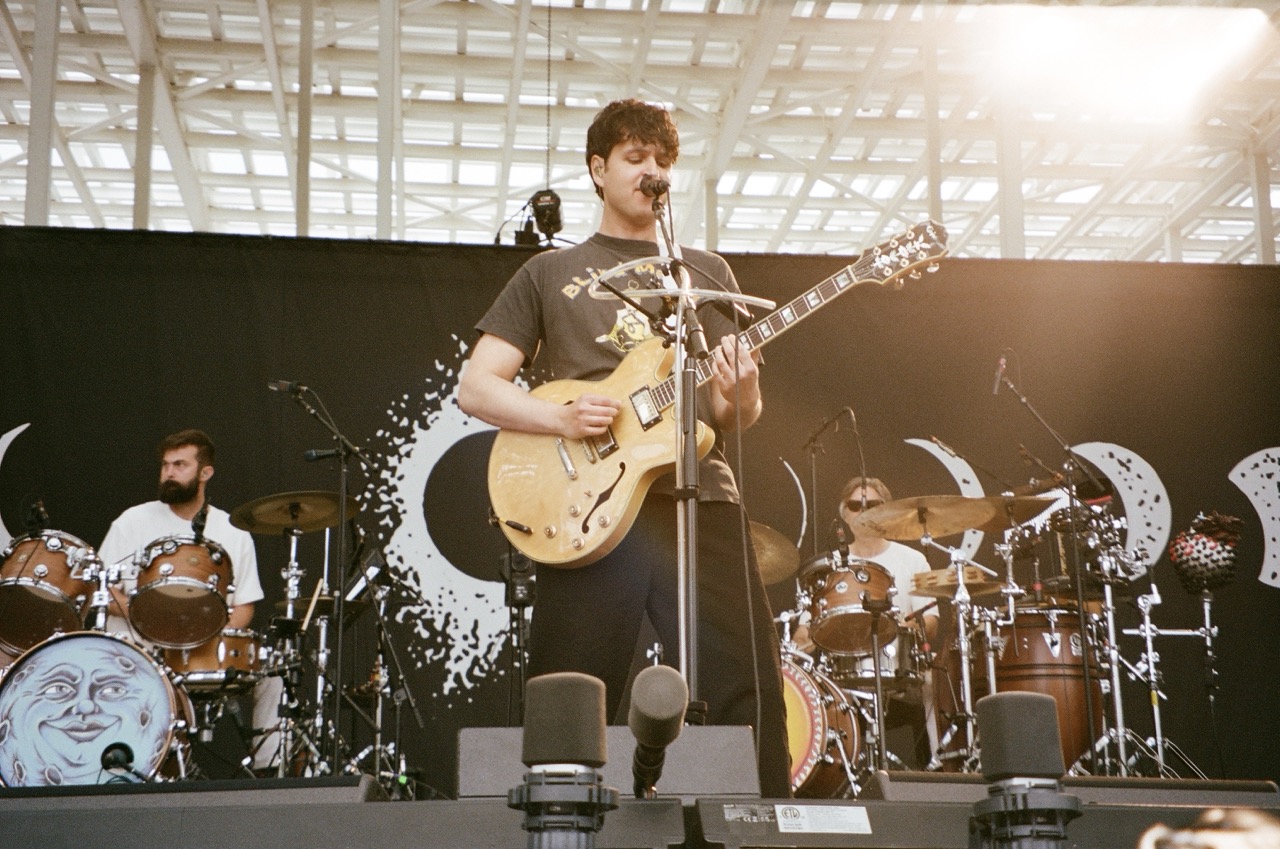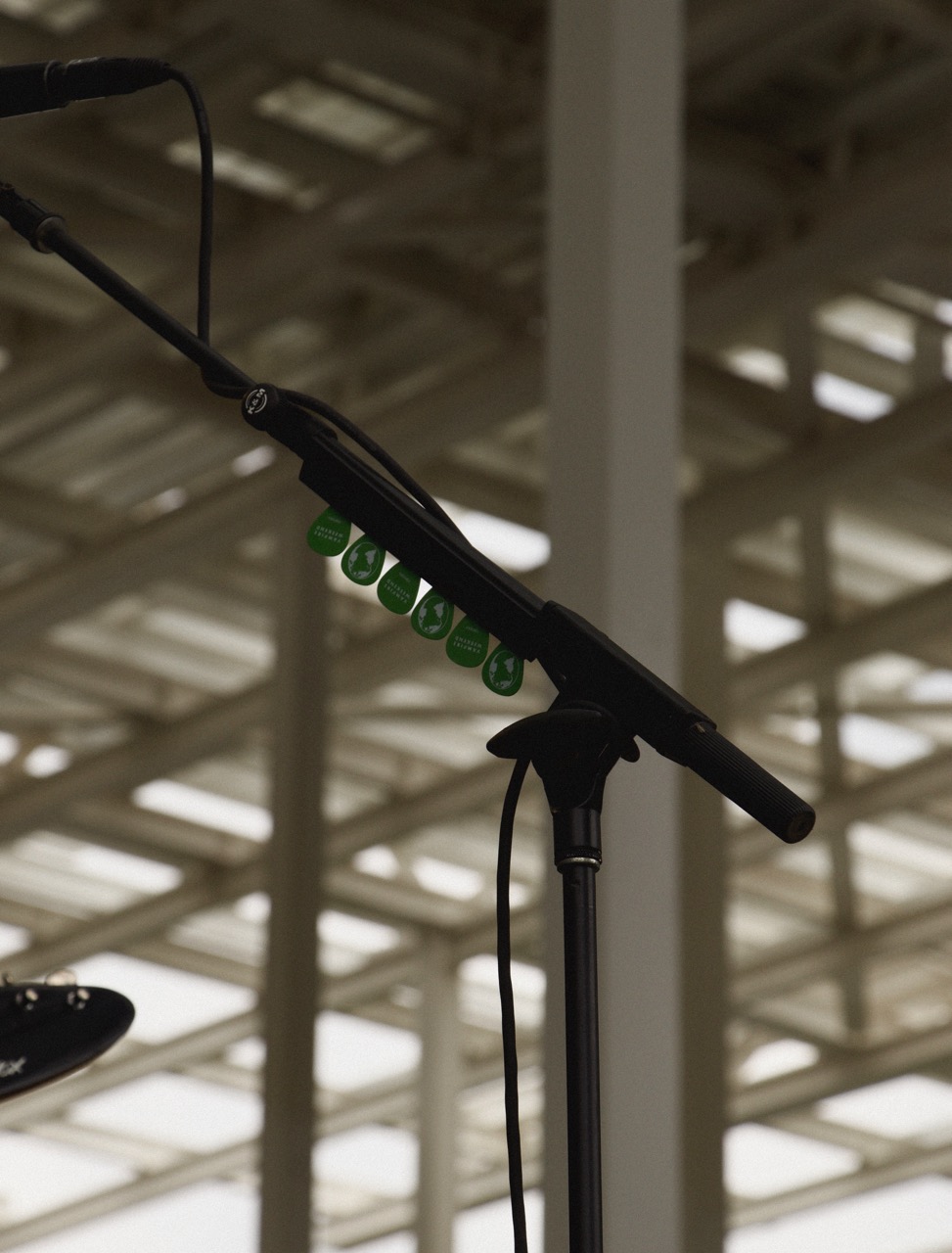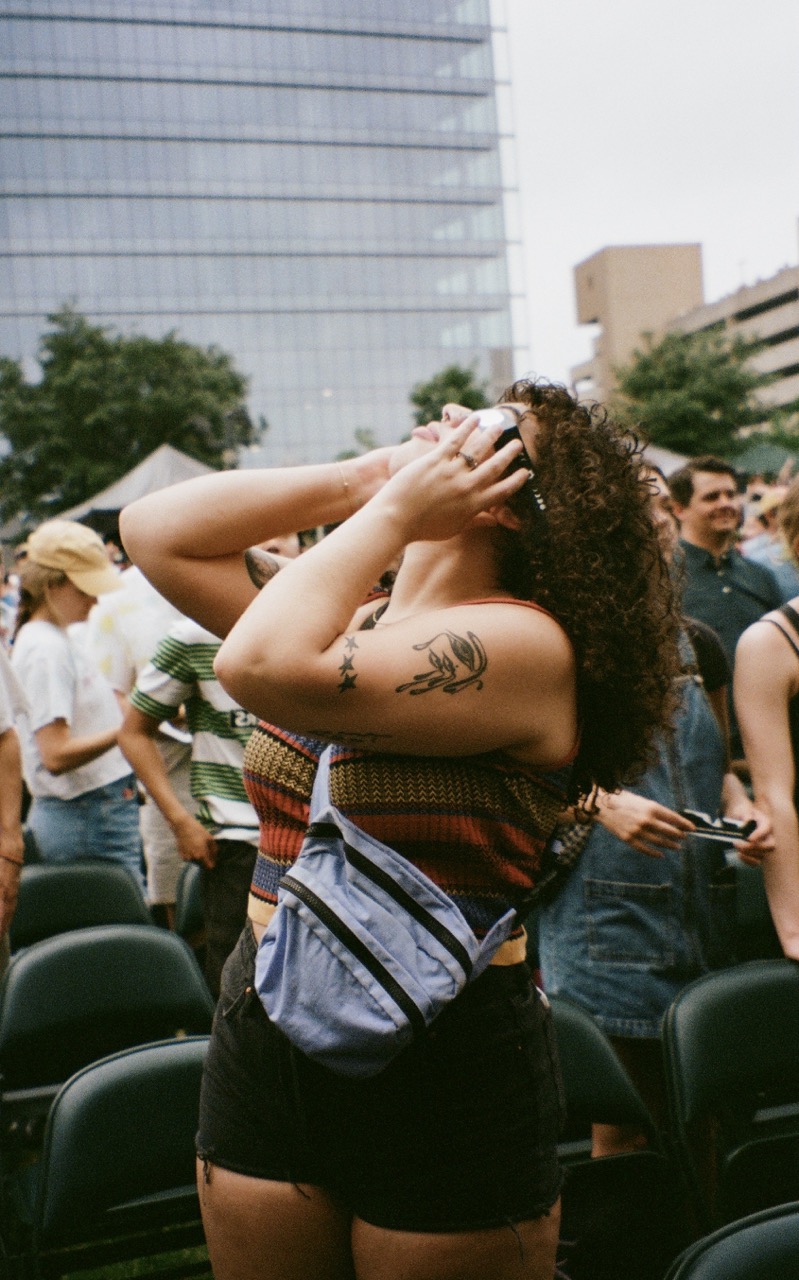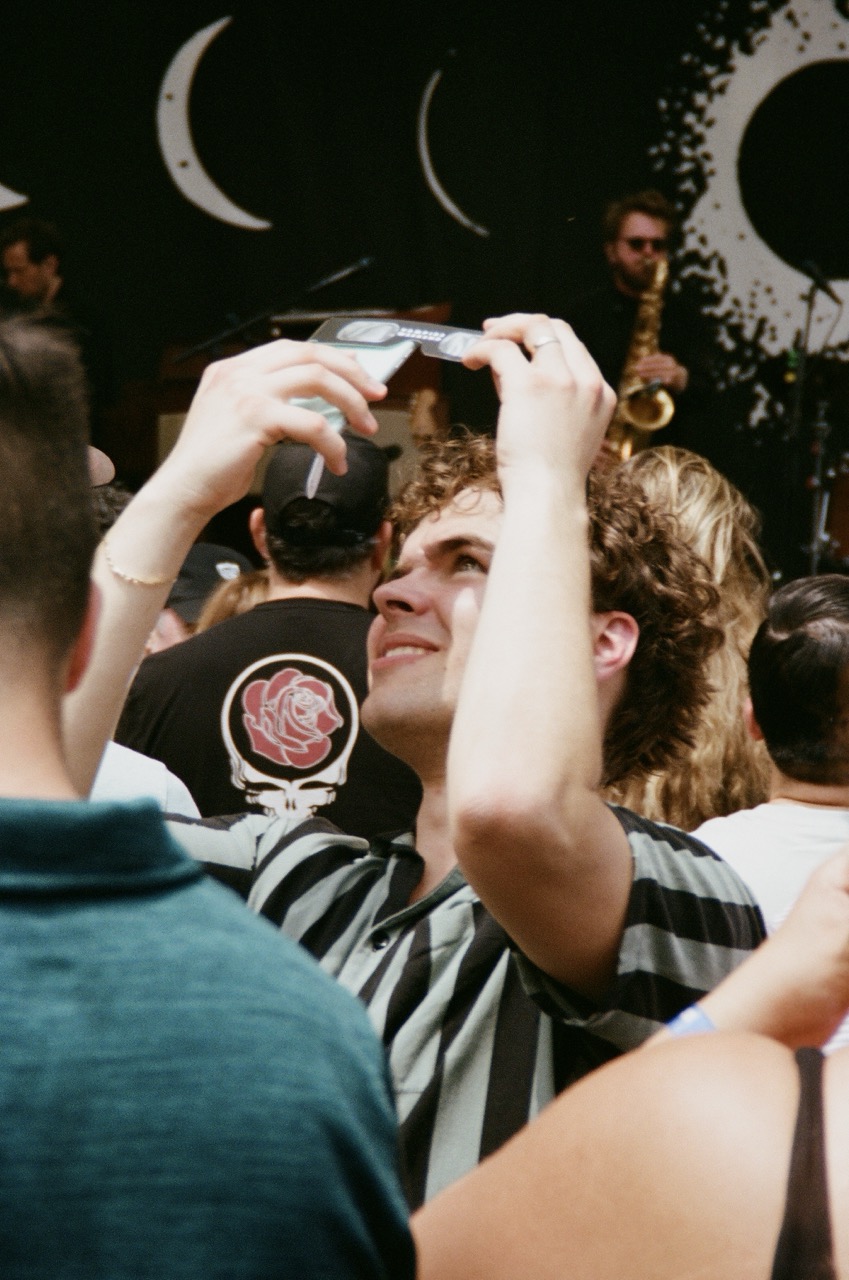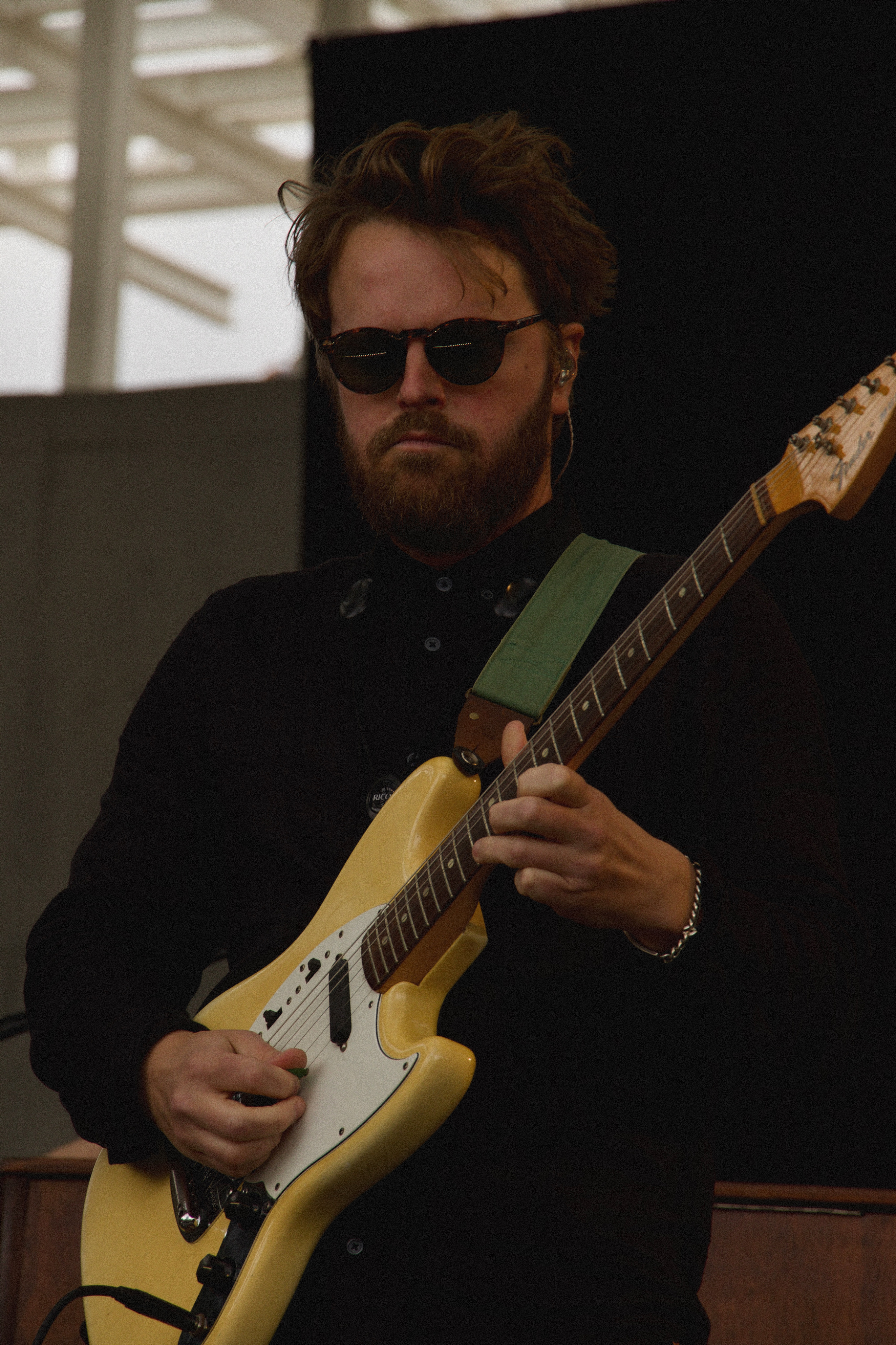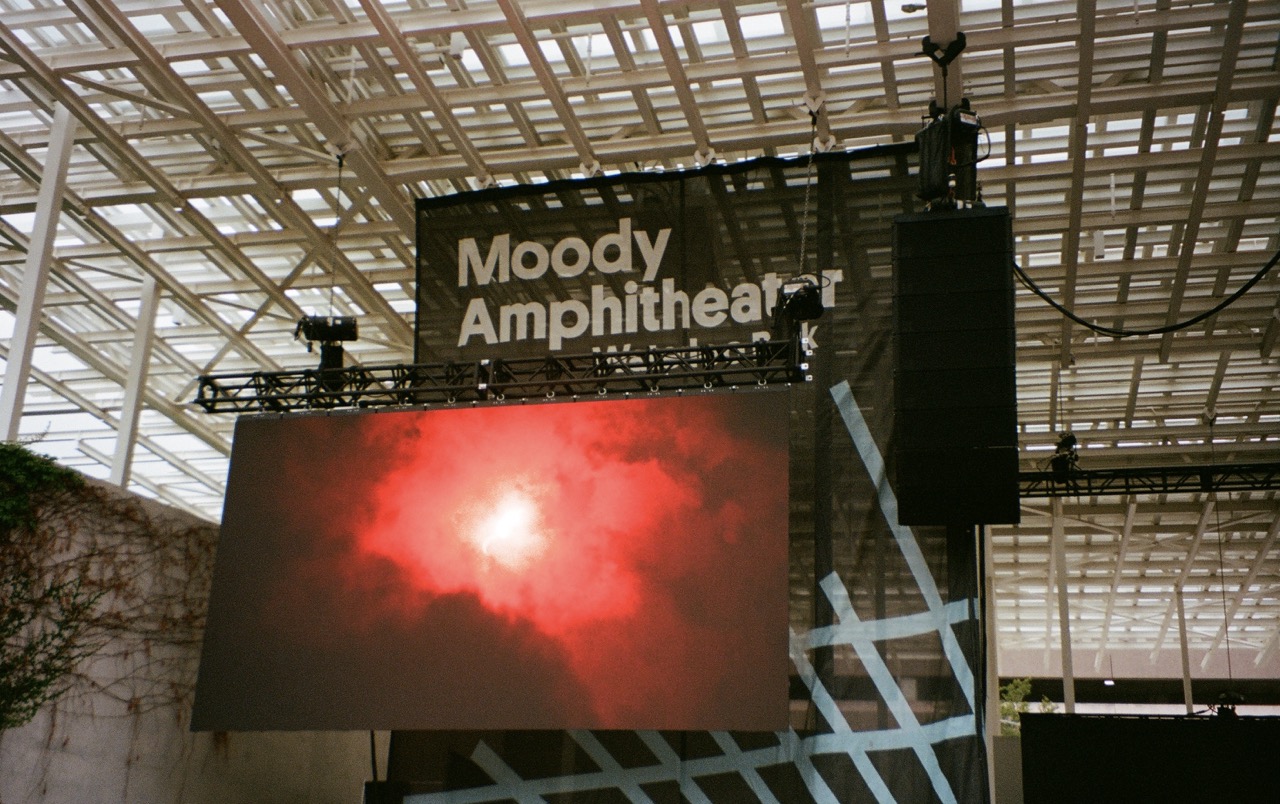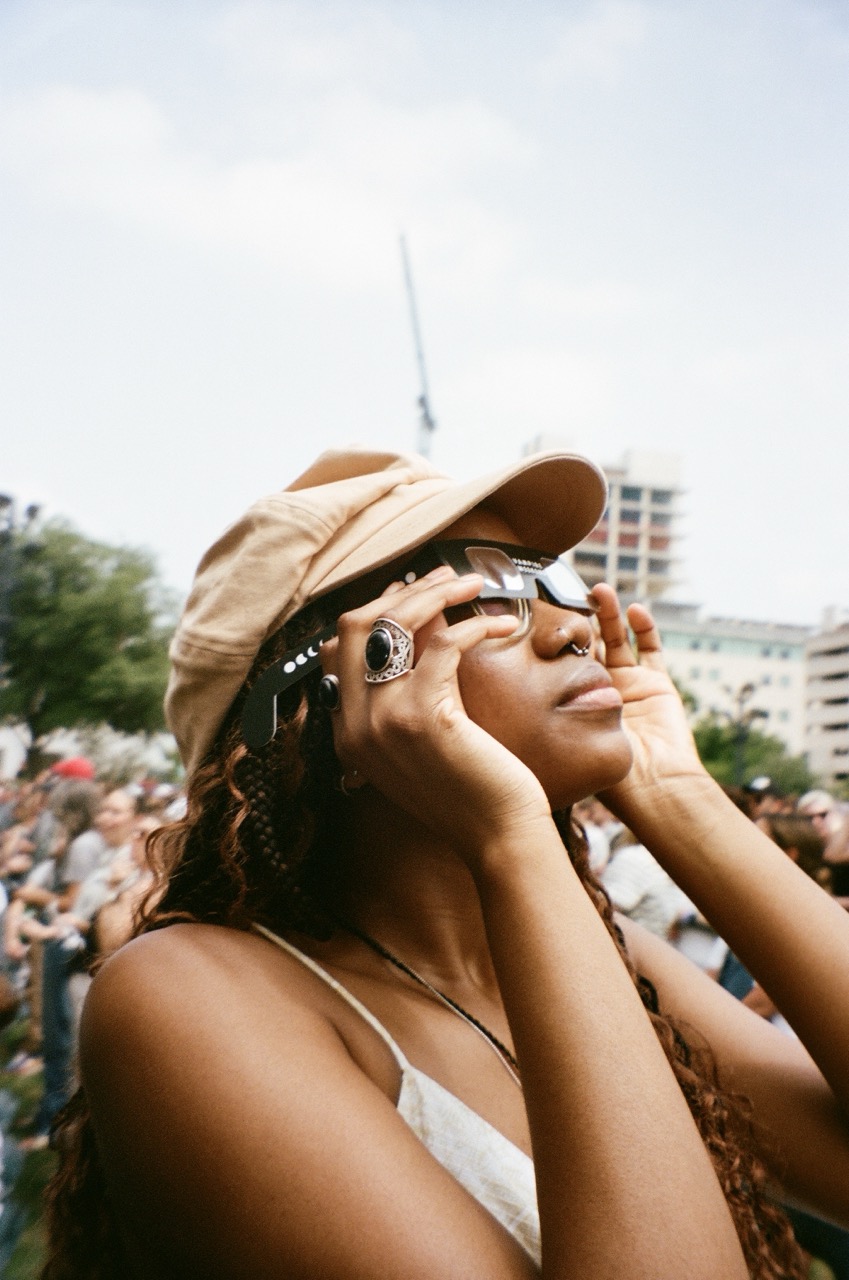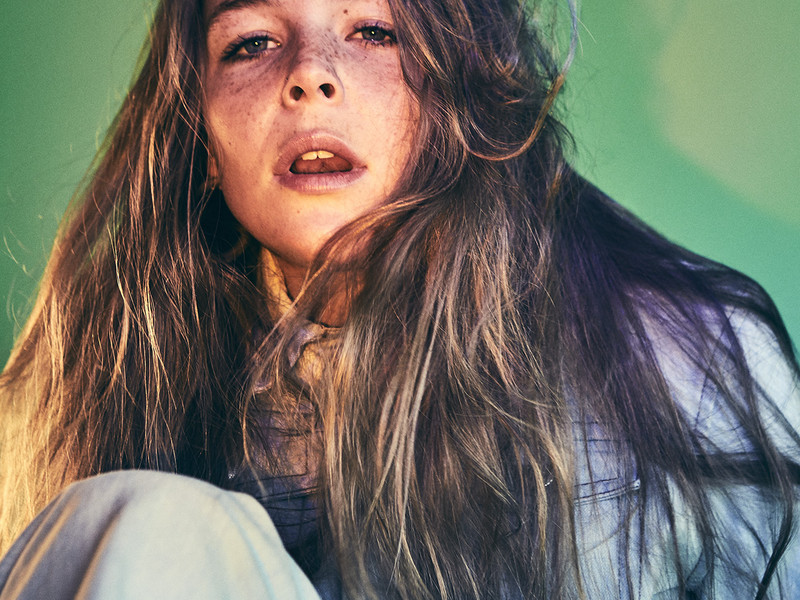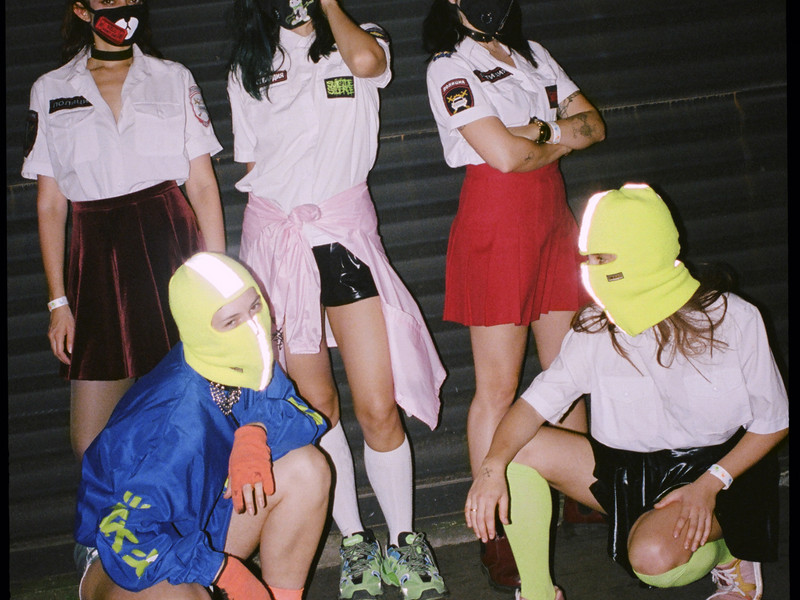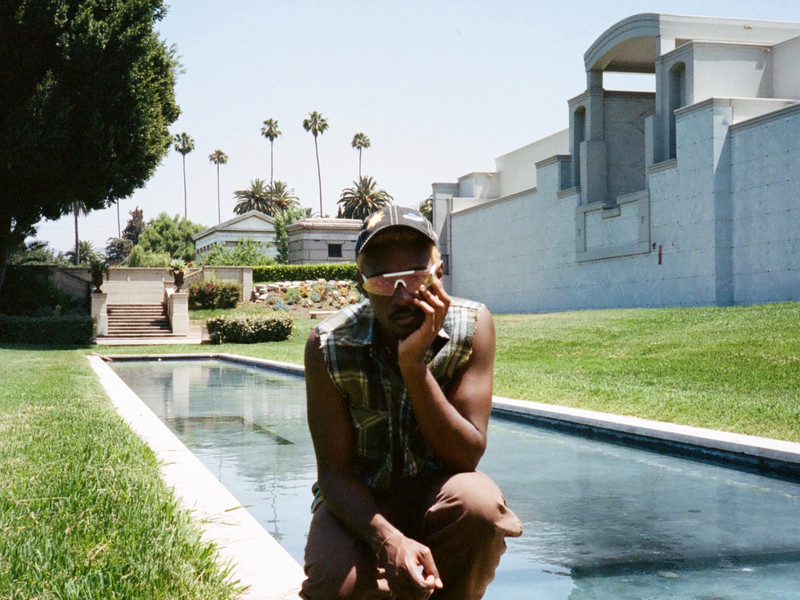Superfanning Over Superfan
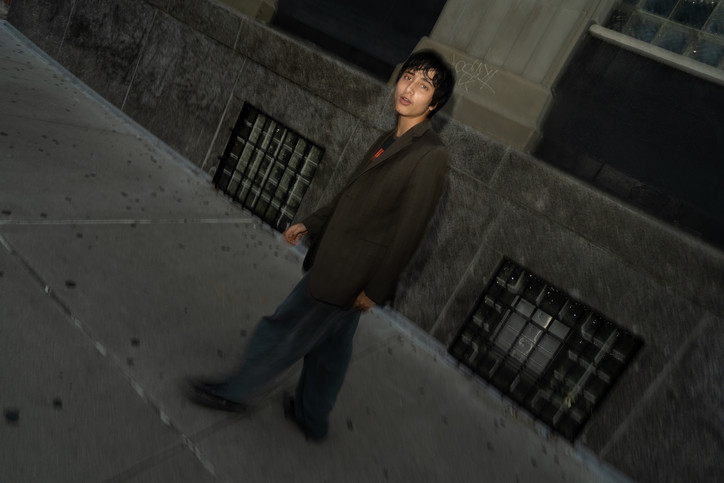
I first met Kali Flanagan, or Superfan, on a Friday night in East Village. He wore a suit jacket and shirt which read "Handsome Little Devil." Little, sure, but by the end of our conversation, Kali seemed to tower over me — expressing his thoughts with enough introspection and fluency to leave my jaw dropped in a pile of discarded gum and cigarettes on the New York City street.
And then you hear the music. Or more specifically, you hear “Sewn Up and Handsome.” Before listening, it’s imperative to find something nearby to hold onto, or else you’ll surely fall to your knees as I did. This single, which was released yesterday, marks the first part of a new sonic and lyrical exploration which releases in full, as an album, on June 28th.
The project prioritizes its depth over breadth, one which chronicles the process of stripping back to build up. Instead of the lush layers and heavy production found in his previous music under "Kali," his new trajectory manifests itself through a comparatively scarcer sonic palette, a decision which aims to make room for and amplify the newfound density of his lyrics. Read below for the full interview.
When did you start making music?
I started making music when I was 11. So I'd say roughly seven and a half, eight-ish years of writing stuff, and I started producing when I was twelve.
That’s pretty absurd. How could you even conceive of producing at that age?
I did all of the school of rock and orchestra at public school and jazz band from when I was five until I started being able to make my own stuff — before I got bored of just playing other people's songs. So it started with writing and then I was like, I want to listen to this. So I tried using GarageBand and then eventually worked my way up to Logic, which I still make demos in. I was making stuff, but I wasn't really caring about it until I was 14, and then I made the first project that I put out under my old project which was just my first name, Kali.
I was doing demos for that stuff and promoting it on Instagram and an A&R at this label network found me and signed me when I was 15, right before the pandemic hit and then I made that first project and started taking shit more seriously. It's funny how things just kind of started to click when I actually needed to make music in terms of an emotional outlook.
When you say “started taking shit seriously,” was it hard to maintain the feeling of play you felt when you were much younger making music? When you had the luxury of it being a private and personal endeavor. Considering that you’re now in a position where other people listening, labels are involved, etc., has it been difficult to stay true to that origin?
It's been a journey because I think in the context of a year — just the timeframe of a year and how the process of making music ebbs and flows within that year — there are points in time where I don't feel like making music. And when I was younger, I didn’t have the security of self, and I'm still learning to listen to my gut instincts, but I wasn't comfortable with that absence when it wasn't there and wasn't clicking. So that would be super frustrating, but then you end up forcing things and make things that you don't like. I’ve been super fortunate to be working with a label that honestly gives me complete creative control over my music and stuff, which is great because I know exactly what I want.
Yeah, and pretty rare too.
Yeah, very rare, and very rare in terms of their support as well. I'm super grateful, and I've been with them since I was 15. I say that it's been a journey because I’m about to finish my first full length, and all of the old music that I've put out under my first name is completely different to the new stuff that I'm making. All of the new stuff I've been making is super personal, my lyrics are pretty blunt, I'm using less instrumentation, and relying less on production to tell the story, even though I feel like I strengthened that muscle in past projects.
But I think in terms of the purity of your artistic expression being preserved, it's really about why you're making something, and where your head's at in terms of making decisions, and I feel like as I've grown up, and am still growing, but going through being a teenager and making music and growing in that sense at the same time, there’s that whole layer of proving yourself to other people. When I was younger that was a bigger part of the process than I realized. Of course inherently it's gonna be there for a little bit, especially when you grow up in an environment that's pretty competitive such as LA, and the way I was raised was to have really high standards for myself and be on all the time, but that's not sustainable, and you realize that's not what life is. Removing other people from my consideration in terms of making decisions, not in terms of collaboration, but in other facets has been really important. When I made this album, it felt like the first time that I was equally respected by the person I’d been working with — his name is Gabe Wax. So it doesn't feel like I'm going to change the way that I’m articulating myself when making music or writing songs for him, which is great. And the same goes with an audience or whatever — I think as soon as I realize that I'm catering to something that isn't what I want to do, I kind of cut it off.


When you were building the album up, was there an initial thematic or narrative through-line that helped dictate the process and approach, or did that come about naturally and spontaneously while making it?
When I'm working on any project, there's always a point where I’ve realized that I've done something that I haven’t done before that is exactly what I needed to make at that point in time, and I think that is a mission statement in itself, and I did have that for this project. It’s the first song I play live and the first song on the record — the song is called When You Come to LA. It was the first time where I felt like I was being honest with myself in the context of songwriting, and was feeling a lot of guilt and shame about a lot of different things and didn't know what to do with it because I wasn't able to project that onto somebody else's perception of me. So it was a moment where I had to look at myself in the mirror and be like, okay, let's address this. And that started the whole process of making this album, and the song sums up my process, because it's a collage of a ton of different things and how their synonymity exists, and that existing creates these feelings that can't be articulated in one word. They can be articulated by vague descriptors like guilt or shame, but there's all of these weird nooks and crannies of context that contribute to this feeling that are reemphasizing.
Totally. Does this new approach you’re taking in terms of expressing emotional ambiguity, ambivalence, and depth through lyricism one of the reasons why you decided to switch your stage name from Kali to Superfan?
Yeah, completely. And secularity as well. There's quite a few reasons. One of them being other musicians having the same name, which is honestly really surprising because I'm named after a Hindu deity of destruction and it's a rare name even in India, or at least it was when my mom named me. My grandma was like, you can’t name him that because it's too powerful, but she did anyways. Another part is that I noticed how I was presenting myself as an artist and how I was finishing songs with other people was not what I had intended for my expression and my outlet, and I think a huge realization I've had in the past year is I'm not actually a very show-off person. So for me to make my name and make it my artist project just feels weird. I also really enjoy the anonymity because it allows me to separate myself in a way that I can say all of this. Even though of course whenever you participate in the creation of something, it’s interwoven, it's a relationship between input and output and how you are living your life, etc., but it just allows me to be more honest and put less pressure on myself.
By having your name be an anonymous one, which also establishes separation, do you find yourself thinking about an alternate persona or aspects of performance art?
It’s kind of ironic because I feel like I am less so putting on airs of any sort or putting on a performance since I've been making music and performing it under Superfan. The name itself came to me as I was playing the last show as Kali and playing those songs. As I was playing the songs, it was the last time I played them, which was about a year ago, I just was feeling so disengaged as I was playing them. And I was like, I can't do this for the rest of my life. Afterwards the name came to mind because people were coming up to me and saying they were super fans and taking pictures with me and it triggered something because I was thinking about how I feel like a super fan a lot of the time. I feel like a super fan is an underdog or somebody that kind of feels almost guilty for knowing so much about somebody, or like, being so excited about something, and I feel that way in a lot of different aspects of my life. Especially music, I mean, I'm definitely always the person that if I see somebody whose music impacted me, I'm gonna say something.
That definitely connects to what you were saying earlier about how you don’t perceive yourself as a show-off — the name Superfan, and what the terms means, feels completely antithetical to vanity and boasting. By that same token, it seems to also underline your excitement and gratitude to be doing what you're doing.
Exactly. I've been playing a ton of shows, and started playing songs from the album in April of this year, and before that I had never done stripped down sets of my material before. It was the like the complete opposite of what I’d been doing before. Where before I was essentially putting on a show — I would wear a suit, etc., now I just show up in my normal clothes and play my songs that are very journalistic in a way.
It seems that you have a pretty substantial clarity of mind in terms of staying attentive to the “why” aspect of what you’re making and how that process comes into fruition. But to jump from singles/EPs to an entire album is a completely different animal. What what would you say have been the biggest considerations you’ve had to take into account while building a more holistic and expansive project?
I think a lot of it is narrative. And it's tough because you don't really know what you're trying to say until you're way past the point of even talking about it. But I think the biggest thing is being attentive and interactive with the environment that isn't music, at least to me that's been a huge thing. When I've made EPs and music as a younger person, I was experiencing things for the first time, which I'm still experiencing, but my depth of the kinds of feelings I'm trying to articulate now is much grander. So it's less straightforward than an EP about a one sided, unrequited romance that lasted over a summer.
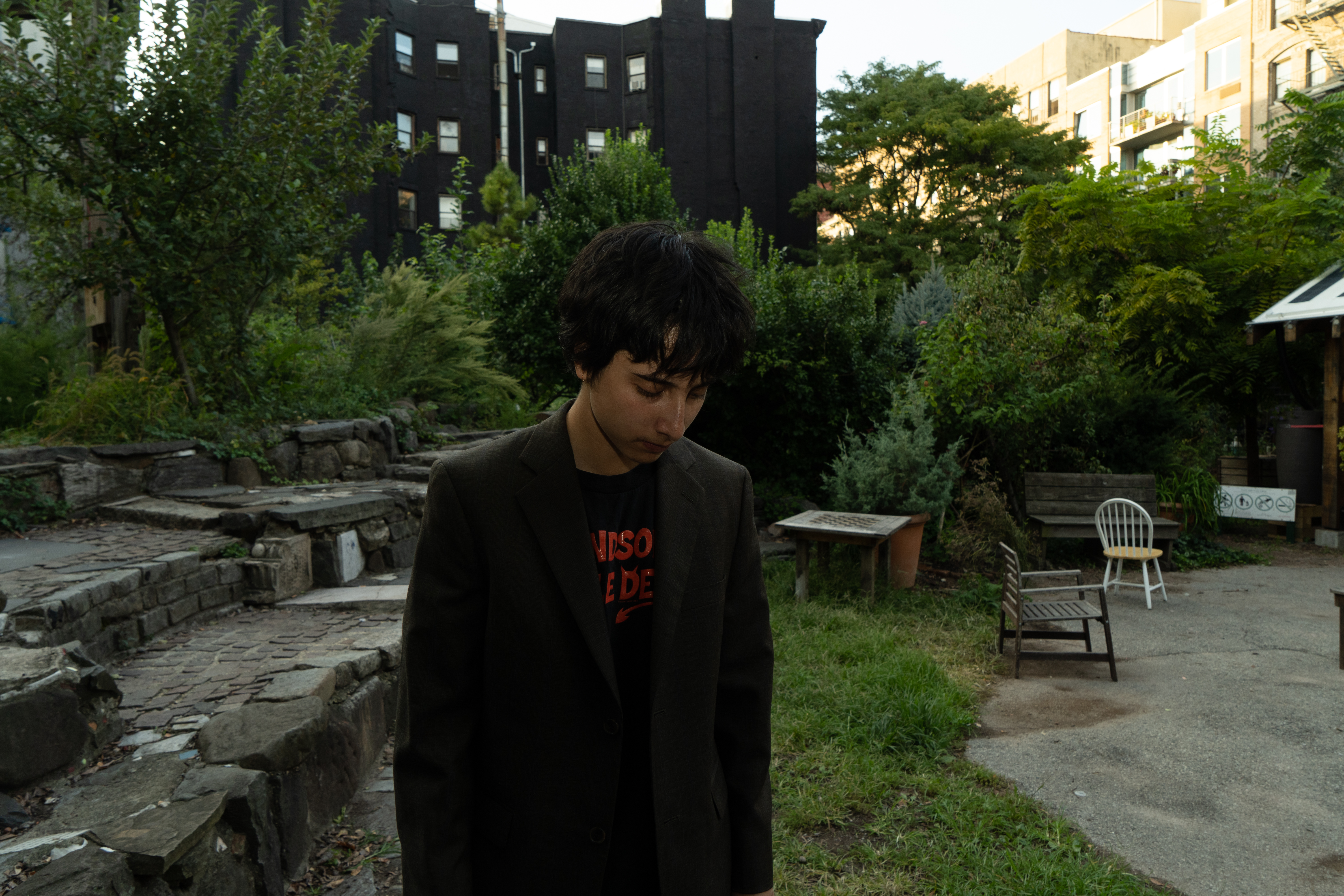

Which came first, the reinvention of your sound, or the changing of your artist name? Did one give you more courage to do the other, or did both facets bloom at the same time?
It’s funny because changing my artist name is sort of metaphorical considering that I’m trans, so the changing of the artist name also represents this change in my identity and how I present myself to people, which is now much more honest.
My voice has changed so much, and on the record itself, you hear it change throughout the making of the songs depending on the different times we've been recording. As I've been doing the shows, people have watched my range shift a ton and heard it crack a lot, but now it's kind of stabilizing. When I was in high school, I would play at the smell a lot and would play those first songs that I really felt connected to. It was really positive in terms of continuing to make music and feeling empowered and not worrying so much about a musical product, but instead enjoying it for what it is.
So I wanted to live that through songs that I felt like were impacting me in the same way. So that was a big part. I also think that visibility is a huge part of it, and although the name change is sort of ironic, because it’s an alias, it does allow for more visibility in a sense. If somebody's referring to me as Kali, they're talking to me as a person, not somebody that's performing. There has to be a little separation, because it's complex relationship to be on a stage interacting with an audience that's a couple feet below you. That relationship in itself, the name change, transitioning, and making music that is pretty vulnerable, I've realized the importance of saying things that you'd wish other people would say. I wish I heard other people say this so I would feel less alone, you know? There's this whole thing of idolization and there’s a line because being young and being highly susceptible to being pigeonholed for a number of reasons, whether that be my age, my gender, my ethnicity, where I'm from, whatever, it’s hard to maintain visibility without commodification. But it's so important because if you don't have visibility then there's no connection. And people need to see you so they can see themselves.
It’s a very fine line to walk, expressing the things which contribute to your identity, both as an artist and as a person, but in having such things exposed, opening the door for their own commodification without consent. Even though this is a worry, it doesn’t seem to have effected the fact that you’ve been playing live a lot more than usual, what’s changed? Why are you more inclined to perform now?
I just love it. My album isn't even finished but it’s just really healthy for that process to flourish because it can be really easy to feel isolated and be like, I don't know what people are going to think, blah, blah, blah. Especially with the music that I'm making, it's so personal that I had to challenge myself to let myself be seen. It's been really rewarding.
Has performing live helped inform the actual production or recording of the album?
Totally. When I make demos, I essentially try to make as close to the final recording as I can, within my bounds. That’s been a problem in the past because I've hired big name producers, but in knowing that I was going to work with them made me work harder. The problem with that is then there's nothing for them to do because I already had a vision. When I started making the album, I was still doing that, and there wasn’t a lot of clarity to the sonic palette. When I was planning the first set, I got my electric guitar and had a ton of pedals, and loaded up a sampler and was doing all this shit. But the songs are already so lyrically dense that I was doing too much and didn’t like that approach to performing them. At the same time I had just started playing my songs for my friends, and instead of showing them a produced track, I would just play it for them acoustically. After they heard those stripped down versions, they responded by saying I should just continue to perform it in this way. So after I played a few shows doing that, I felt there was something here. So I started working with my producer, Gabe, and after those performances, we felt that we needed to first base the album around me and a guitar and then build up from there so the songs could be as good as they were bare bones.
Was it daunting to pretty drastically amend your process which had become habitual after years of writing and producing, especially in terms of this new lyrical vulnerability?
As I've been finishing these songs, it's been a little draining to a certain extent because there's a lot of admittance in these songs of things that maybe I've had a hard time being honest with myself about. Additionally, there are other people involved in the depictions of my experiences, whether that be my relationships with other people, my family, or my friends. So that's also an interesting line to walk that makes it all the more hard. It definitely felt like an of bravery in some ways, but you're gonna have to cross a boundary if you want to make something that impacts you — it has to be controversial to a certain extent. Whether that be in terms of sonics or what you're talking about. It's important that not everybody likes it, because then what’s the point?
